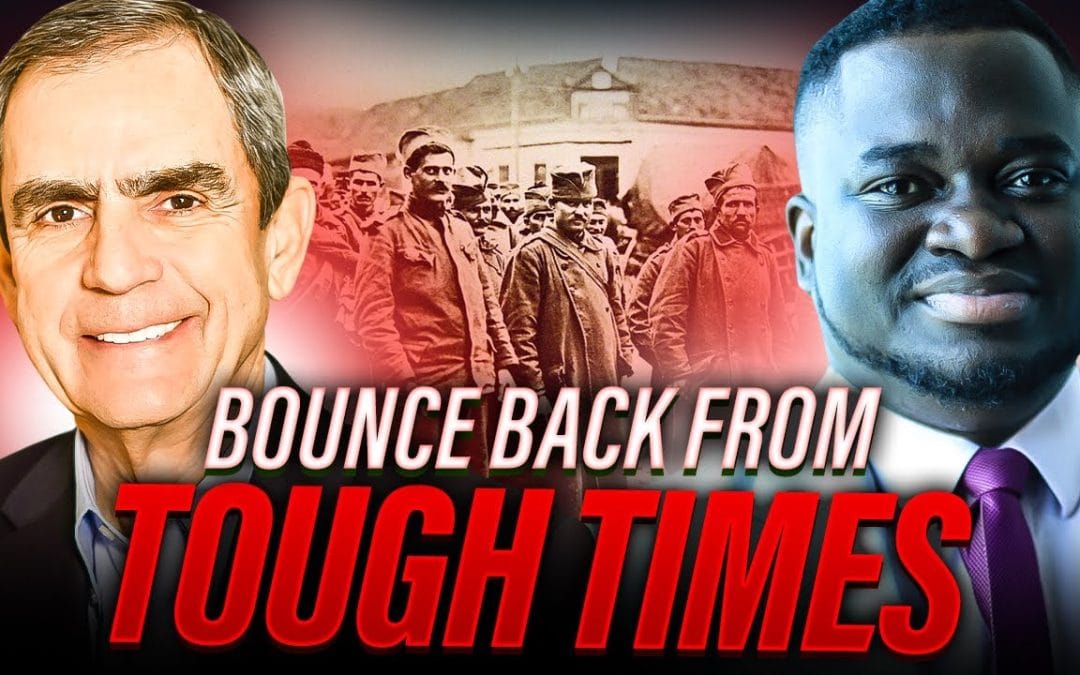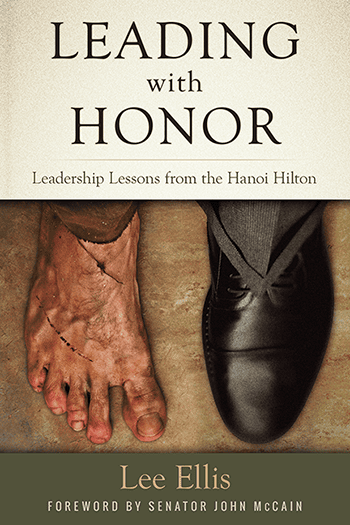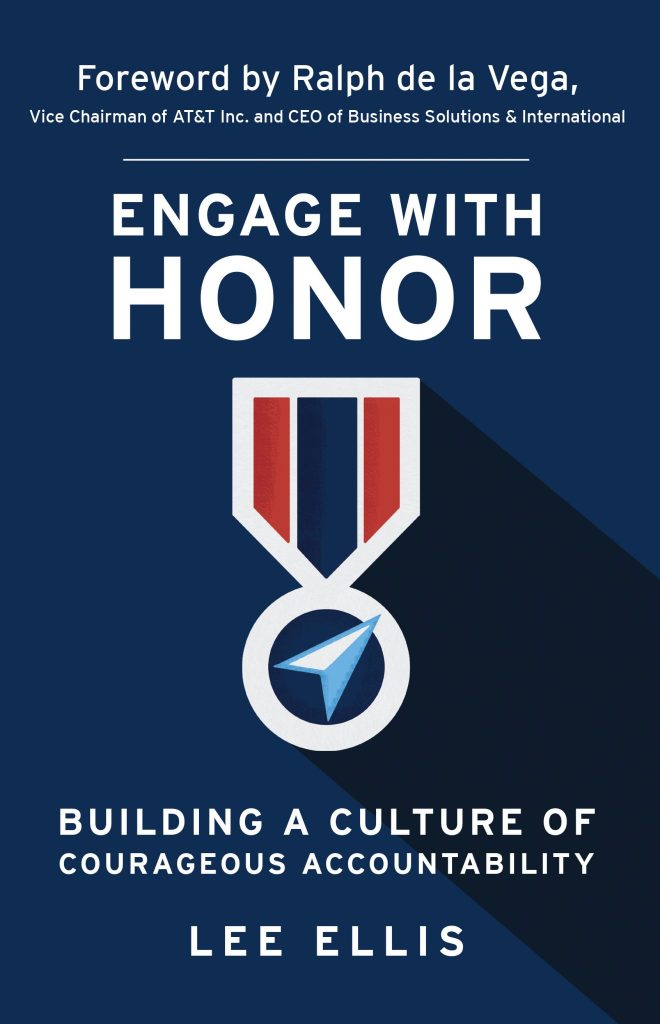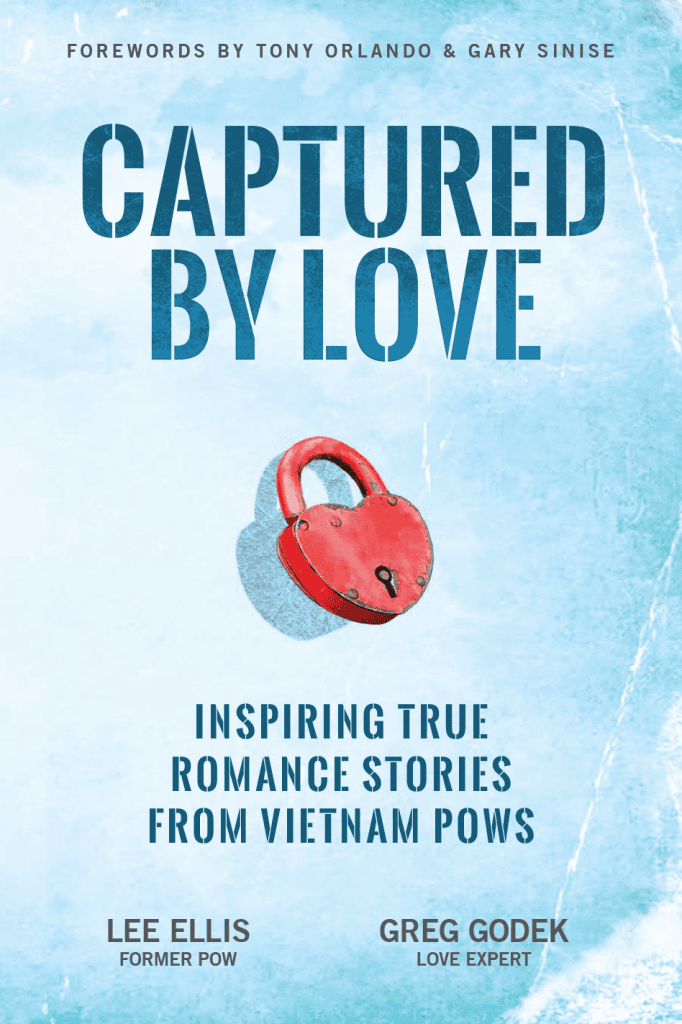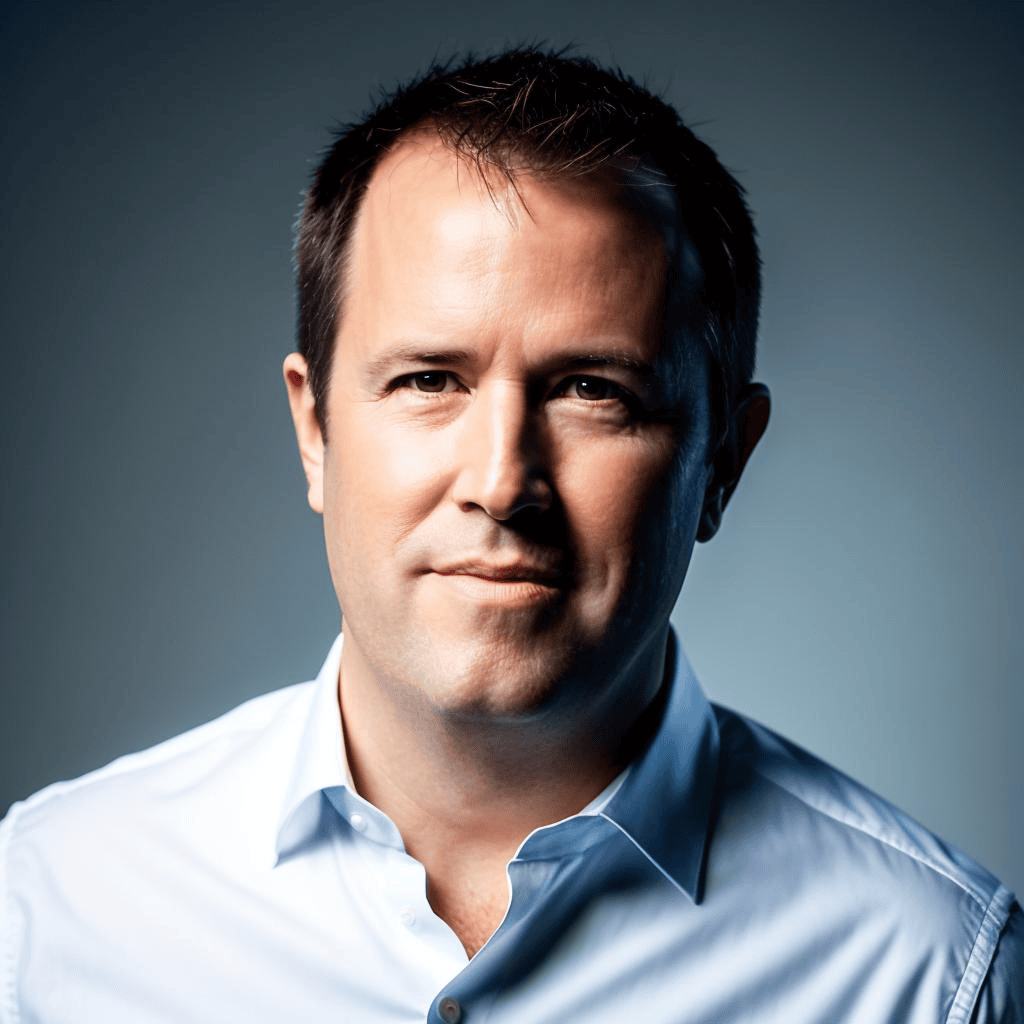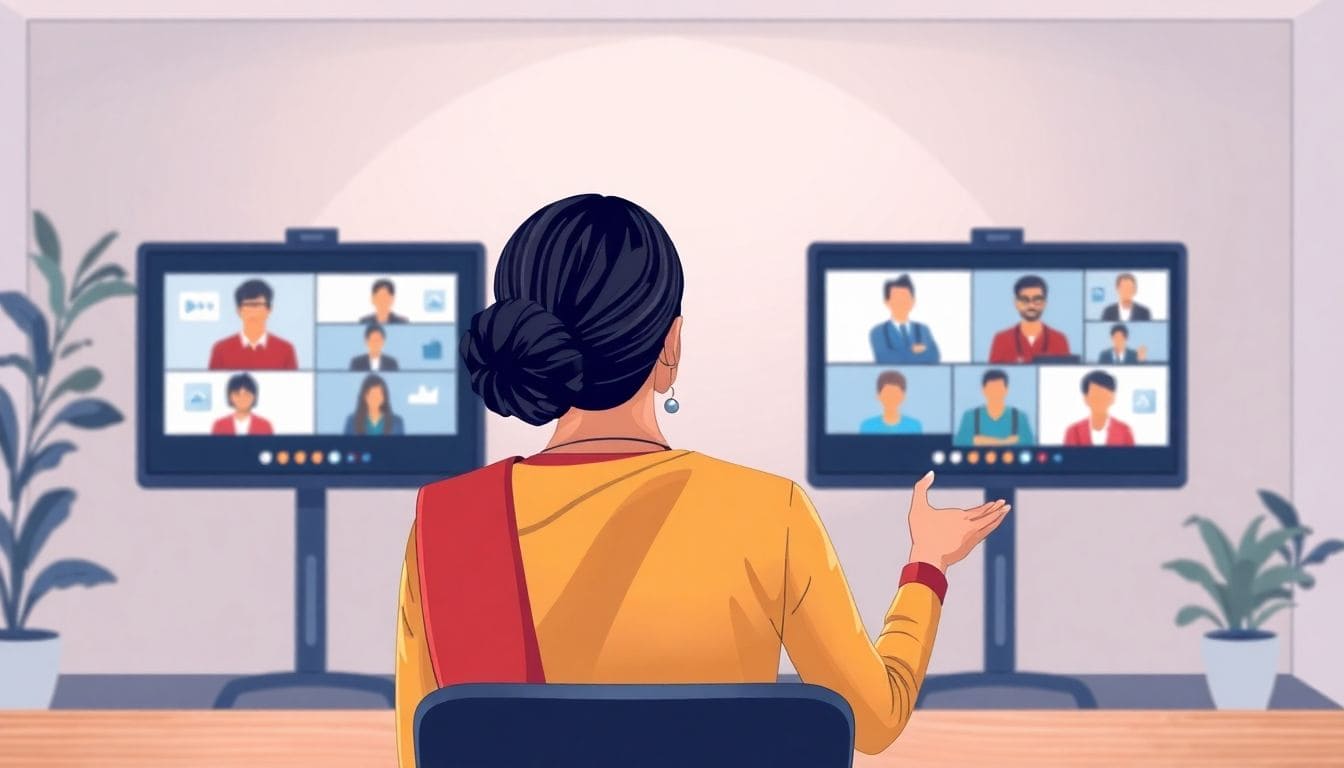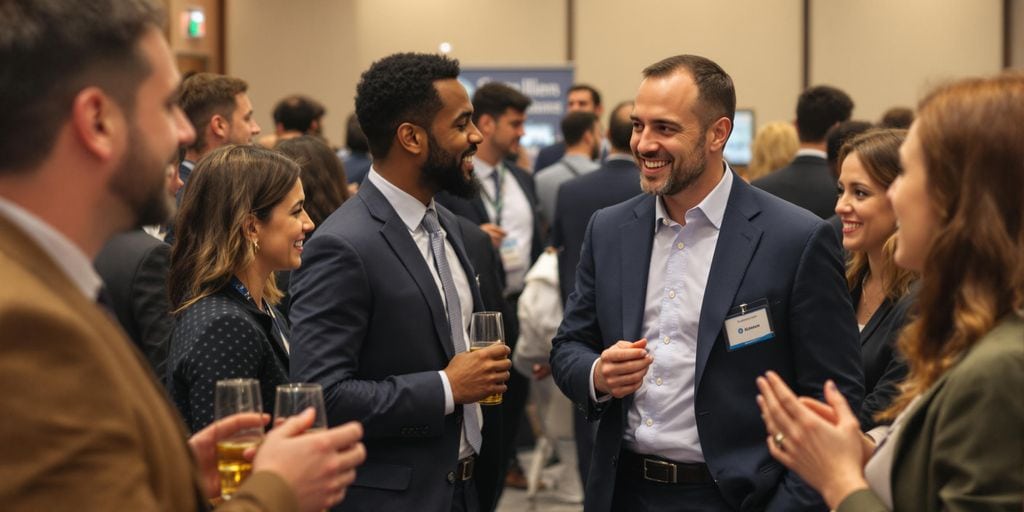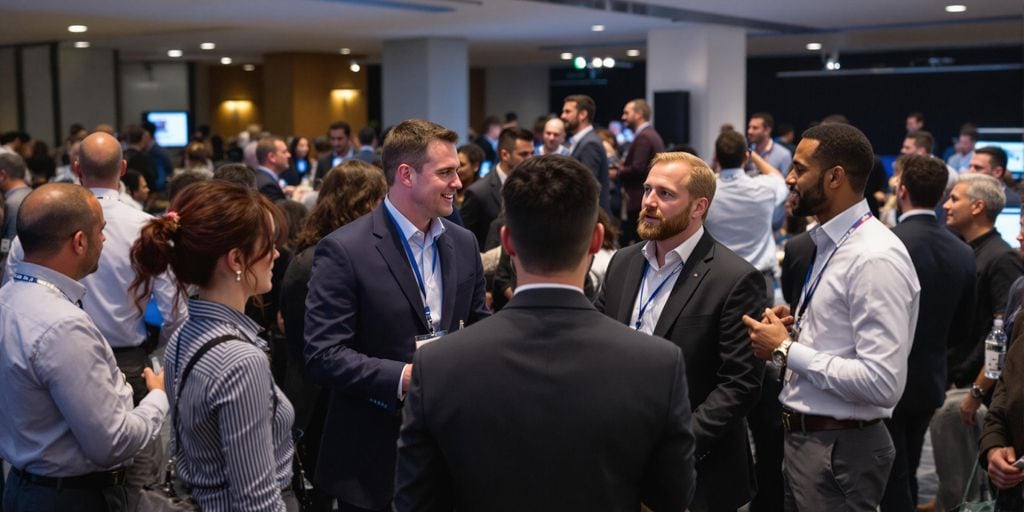The hard truth from Lee Ellis, Vietnam POW and seasoned corporate operator: resilience is a system, not a slogan.
Outlasting five and a half years of captivity meant Ellis didn’t just “survive”—he rewired adversity into actionable frameworks for leadership, self-coaching, and growth.
What sets his outlook apart for today’s executives isn’t war stories or platitudes; it’s his insistence that grit, values, and focus are repeatable levers for transformation—even when the walls are closing in.
Table of Contents
Why This Episode Matters for Operators and Boards
Resilience is discussed everywhere, but rarely described in operational detail. This conversation delivers a first-principles blueprint for recovering from setbacks, rebuilding identity, and leading teams out of hard places. The lessons Ellis draws from the Hanoi Hilton echo across C-suite realities—turnarounds, post-merger friction, rapid pivots, and even quiet crises of confidence. Every operator will face a version of captivity—sometimes physical, often psychological or systemic. How you respond defines your results.
Lee has been a member of CEO Netweavers for many years, and it is our honor to highlight this conversation as we have seen these topics change both companies and people for the better.
Resilience by Design: Surviving and Thriving in Hostile Environments
Ellis’s experience clarifies something many leaders prefer to leave fuzzy: resilience is not passive endurance, it’s a discipline built on systems, peer support, and—most of all—clarity of mission.
In the POW camps, external resources were stripped away, but values and community became the ultimate edge.
“You had to stay alive hour by hour, and then it became day by day, and then a week by week, and then month by month and then year by year. So I was there almost five and a half years.”
Ellis and his peers focused relentlessly on staying true to their commitments—the “six articles in the military code of conduct”—not because they were convenient, but because they anchored action in a fog of uncertainty.
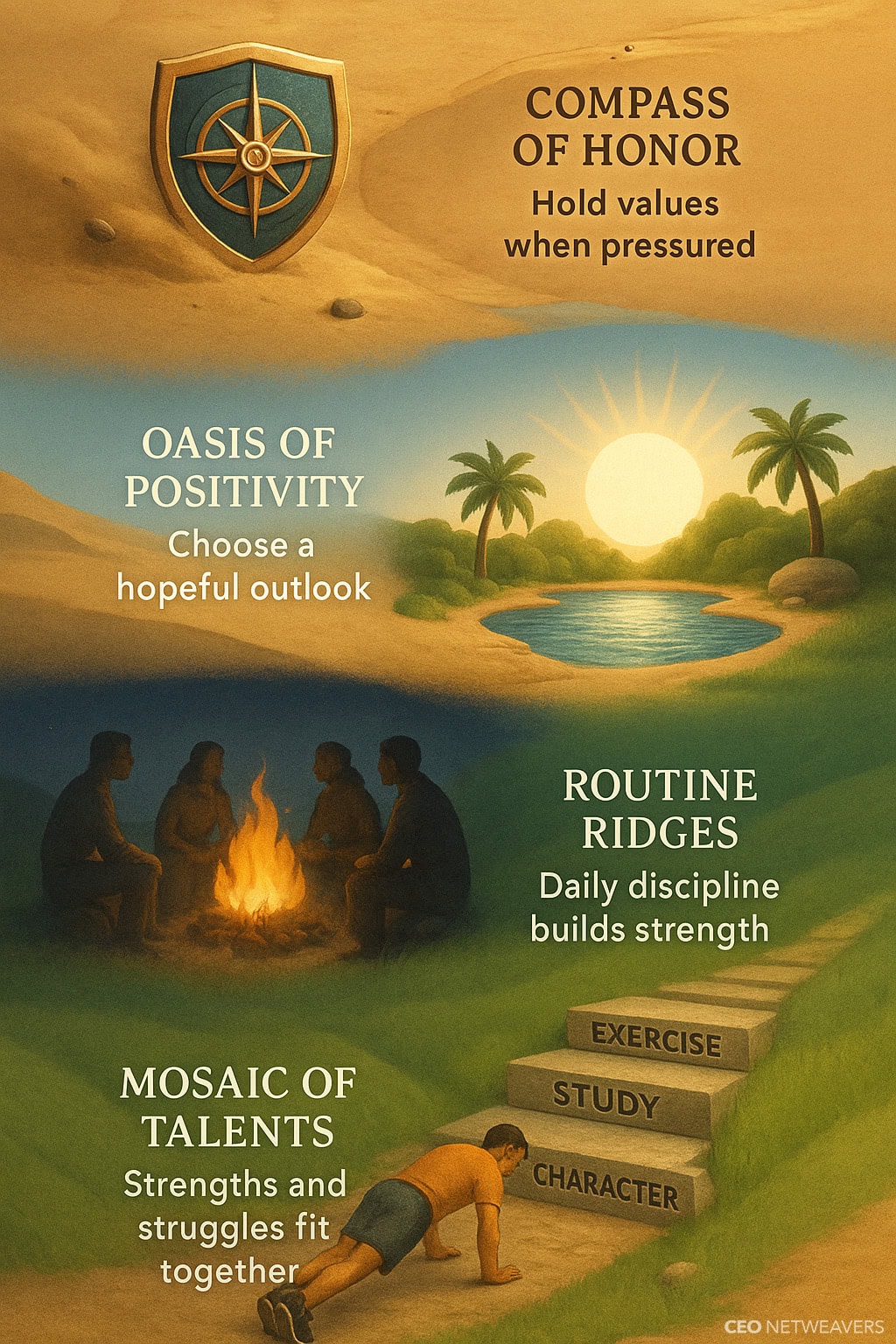
This meant refusing to betray fellow captives or lose hope, even under torture. The lesson for today’s executive: define and reinforce your operating values before crisis hits. These are your fallback system when incentives and structures collapse.
It’s telling that the POWs, compared to other veterans, had lower PTSD rates and longer lifespans—a counterintuitive outcome, given their ordeal. Ellis credits this to a deliberate focus on positivity, community, and daily progress (from covert communication to makeshift education programs), showing how even in extremity, operational structure produces outsized results.
“You’ve got to stay positive. Now, the fact that our leaders were bouncing back after being tortured and staying positive…that really helped all of us.”
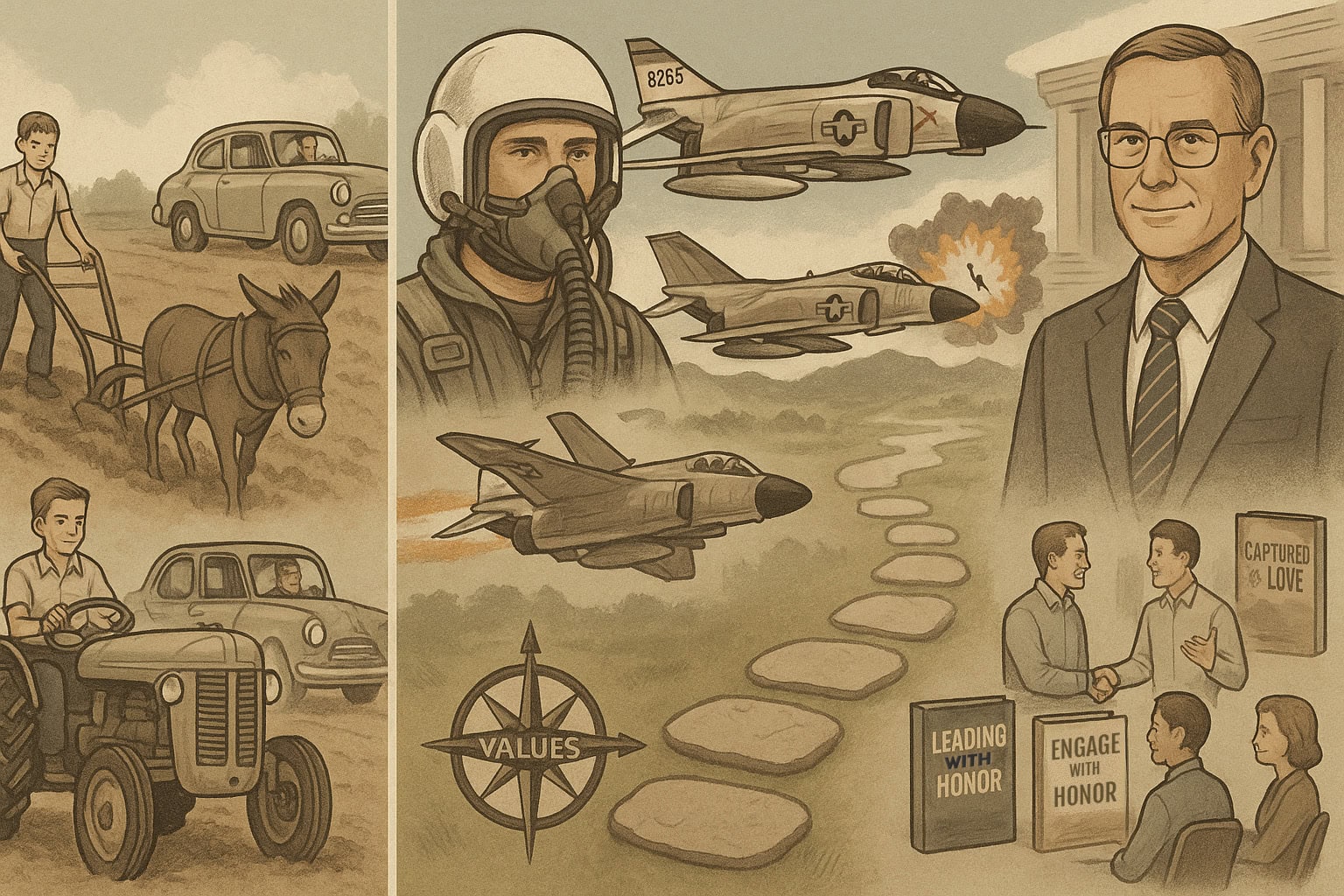
Rebuilding Identity: From Breakdown to Breakout
What happens when an operator’s world implodes?
For Ellis, the return to civilian and business life required a reinvention that started in the most constrained of environments. Notably, he didn’t try to pretend the trauma didn’t exist. He used it—clarifying both strengths and blind spots, and refusing to cling to a static identity.
He emphasizes the power of self-awareness in transition. Leaders emerge stronger not by ignoring their limitations, but by actively seeking complementary strengths. Ellis’s postwar path, including a return to flying and an eventual pivot into leadership development and authorship, is a practical masterclass in leveraging both talent and struggle.
“We learned one thing in there is that we all have different talents. We’re similar in some ways, but we have different talents. And so you have to learn to understand that you have some strengths and to go with some strengths, you have some struggles.”
He’s quick to add: focusing on strengths goes beyond self-optimizing. Sustained transformation demands constructing teams with intentionally offsetting talent profiles and listening to diverse inputs. “To be successful, you got to have somebody around you that has that other talent…and let them hand that over to them and say, tell me what you think before you make that decision.”
Operators take note: reinvention is iterative, not binary. Short-term “waypoints” (such as returning to piloting before pivoting to leadership work) create the space and perspective needed for an enduring transformation.
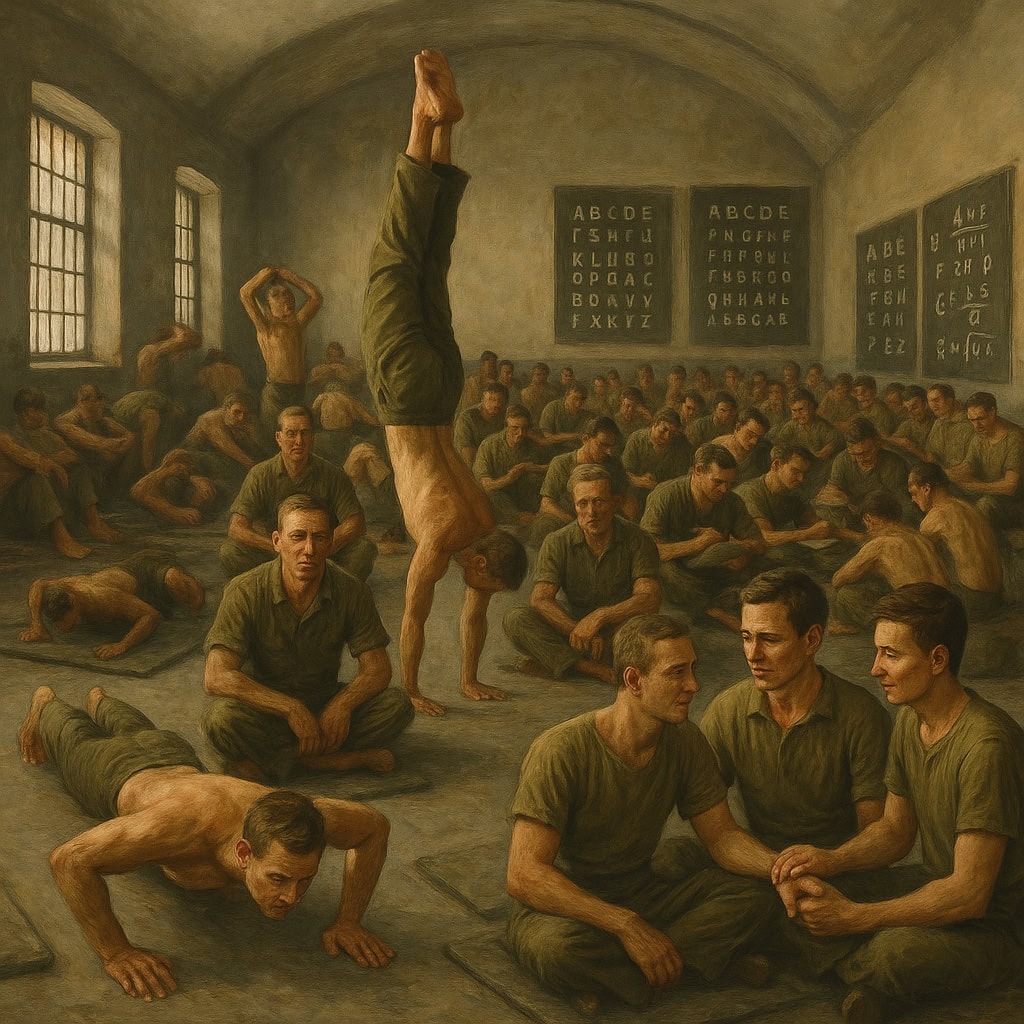
Peer Networks as Recovery Multipliers
The POWs didn’t just survive as individuals; they created a makeshift, high-trust operating system—a model as relevant in boardrooms as in survival situations. After torture ended, captives were moved into larger groups (Ellis recalls being locked up with 55 other officers, including John McCain), where they self-organized deep education programs, peer accountability, and explicit emotional support mechanisms.
“We started our education program…You could study Russian, German, French, and anything—math, calculus—you could study all of that. And so we got busy.”
This was more than keeping busy; it was purposeful upskilling and restoration.
The group explicitly worked at psychological hygiene, resolving guilt, shame, anger, and bitterness, and actively coaching each other to be ready for future freedom. Internal friction was dealt with directly—two loud arguments in two years, both resolved before nightfall.
For modern leaders, the application is direct: resilient communities recover and grow faster. The way forward is to structure peer support, continuous learning, and mutual accountability—not as side projects, but as core operating systems.
For more on the power of executive communities and how CEO Netweavers puts this cycle into practice, see membership.
Self-Coaching and Adaptation: The Growth Loop
Ellis’s most actionable leadership lever isn’t born from tradition—it’s the self-coaching cadence he installed for himself and now teaches to others. This isn’t motivational rhetoric; it’s preventive maintenance for decision-makers whose “first plan” often collides with harsh realities.
“You always have to believe in growing. You have to coach yourself to grow. And I coach myself. I’ve been married 50 years and I coach myself to listen to my wife because listening is not easy for me. I want to talk, I want to tell people what to do.”
He identifies the risk of stasis as the main enemy of evolved leadership. Executives who stop learning—who believe that a single playbook or success formula is enough—find their edge dulled, their context outdated.
Ellis offers a specific model: move deliberately from insecurity to security through knowledge, reflection, and side-by-side listening.
“Listening is not easy for me…I coach myself.” Whether applied to spousal relationships or the boardroom, this adaptability creates compounding advantages in changing environments.
Growth-minded self-coaching, made visible to the team, normalizes adaptation and candor—turning vulnerability from a liability into an organizational advantage.
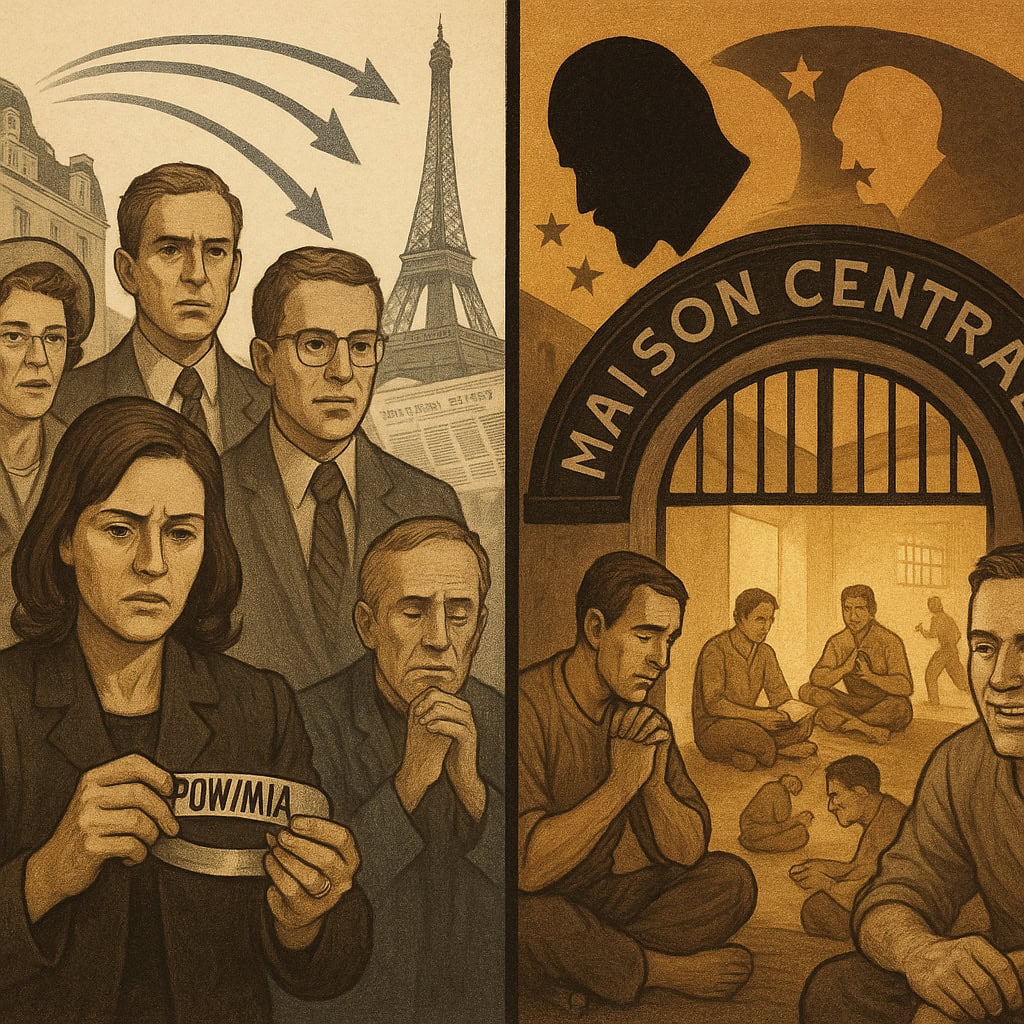
Relentless Commitment to Values: The Culture Edge
Scroll through headlines, and the cost of compromised values is obvious—governors, executives, and even local managers finding themselves “one step away from being a crook.” Ellis’s final prescription is both simple and non-negotiable: take torture before you violate your code.
“Take torture to live up to your values. If we had that in our country today, Washington, D.C. would be very different. Every state, every county, every community.”
Leaders who treat core values as operational mandates (not wall art) create anti-fragile teams—capable of withstanding both external pressures and internal temptations.
In the POW camps, this meant coordinated resistance, covert communication, and peer reinforcement of integrity. In the C-suite, it determines whether a company recovers from crisis with identity intact or collapses in scandal.
Accountability isn’t a policy statement; it’s behavioral muscle memory, forged by repetition and modeled from the top. For senior operators reviewing their own organizations: when stress spikes, does the team close ranks on values? Or do cracks start to show?
For executives who want to embed courageous accountability deep into their culture, CEO Netweavers has operational playbooks to share at upcoming events.
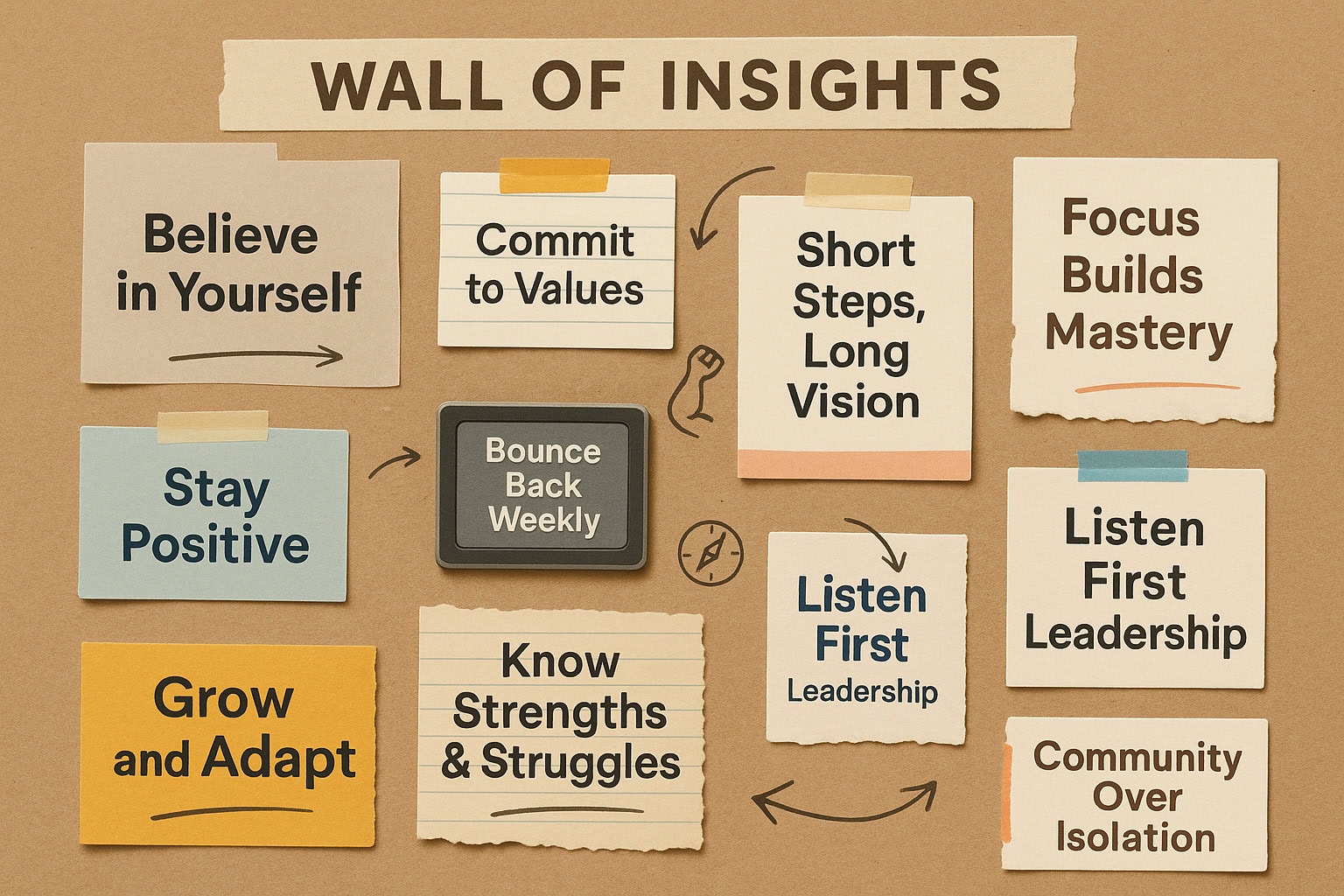
Operational Takeaway and CTA
Set up a structured peer group—internal or external—where values are reinforced, self-coaching is visible, and accountability is mutual. Don’t wait for adversity to build your resilience system; start this quarter. Executive isolation is itself a form of captivity.
If you are a senior leader in Georgia, please consider joining us for one of our upcoming meetings.
Explore Inflection Point if you are navigating a moment of growth, risk, or transformation.
Questions to Consider
Here are 10 discussion questions built directly from the insights and experiences shared in this episode with Lee Ellis and Iredafe Owolabi:
- Lee describes how his POW leaders continually “bounced back” after suffering severe hardship and torture. What can today’s executives learn about resilience and positivity from those examples—and how does this translate to business adversity?
- The idea of “staying committed to your values and your commitments” is core to Lee’s survival in captivity. How does this principle apply to ethical dilemmas faced in the boardroom or C-suite?
- Lee talks about the importance of community—leaning on peers for support and accountability. In what ways can senior leaders foster similar trusted communities on their teams?
- After his release, Lee made a conscious decision to reinvent himself and focus on his leadership strengths rather than returning to flying. How should leaders evaluate when it’s time to pivot or double down on a new path after a major setback?
- Lee emphasizes the necessity of understanding both your strengths and struggles. How can executives accurately identify their own blind spots and build the right team around them to fill those gaps?
- The POWs created an education program and focused on personal growth even in captivity. What are practical ways organizations can build a culture of continuous learning and adaptability, especially in tough times?
- Lee says he often has to “coach himself” to listen—especially as he recognizes his natural leadership style tends toward action. How can leaders cultivate better self-awareness and coach themselves to adapt in real time?
- When asked about common barriers to great leadership, Lee notes the risk of stagnation and the need to keep growing and adapting. What are effective mechanisms leaders can use to ensure they don’t plateau?
- Faith and personal belief played a crucial role in Lee’s outlook and recovery. To what extent should personal values and beliefs shape executive decision-making in high-pressure environments?
- Lee and Iredafe discuss how people can become “prisoners” of things like debt, anxiety, or societal expectations. What parallels can leaders draw between these mental prisons and their own experience managing risk, change, or failure within organizations?
Feel free to adapt these for boardroom roundtables, leadership team offsites, or C-level workshops—each question is designed to spark actionable dialogue grounded in Lee Ellis’s powerful story.
Memorable Lee Ellis Quotes
- “You’ve got to communicate with the people around you that have been through something similar to you.”
- “Initially you had to stay alive hour by hour, and then it became day by day, and then a week by week, and then month by month and then year by year.”
- “We had to keep our commitment, be loyal to our commitment.”
- “We got busy. But the main thing we did was every day we tried to get healthier and over our shame and guilt and our anger and bitterness.”
- “We learned one thing in there is that we all have different talents.”
- “On a scale of 1 to 10, everybody has some talents that are about 7, 6 or 7 or 8, naturally.”
- “To be successful, you’ve got to have somebody around you that has those other talents.”
- “Sometimes you have to step into something that helps you see and open the doors for other things.”
- “You can’t be too proud. You can’t be too insecure.”
- “The most important thing is to believe in yourself, continue to grow to know more about yourself and become a better person, and always stay firm.”
- “We’re all one step away from being a crook. One step away. And if you don’t stay committed to your values, you’ll slide away pretty quickly.”
- “My faith was strong before I went there. I started praying and trusting the Lord that I was going to make it through, and I did.”
- “When everything breaks, survive the landing”
Memorable Iredafe Owolabi Quotes
- “There are people who may not be prisoners of war, but they are prisoners of debt, they are prisoners of pain, they are prisoners of greed, they are prisoners of anxiety.”
- “People are in prisons of many kinds and you just never know who would receive a word of encouragement from listening to this.”
- “There are many creatives who go to the grave with their ideas unbirthed.”
- “It just tells you that there’s no limit to what you can be, to who you can be, and to where you can go if you choose to be positive and believe in yourself.”

